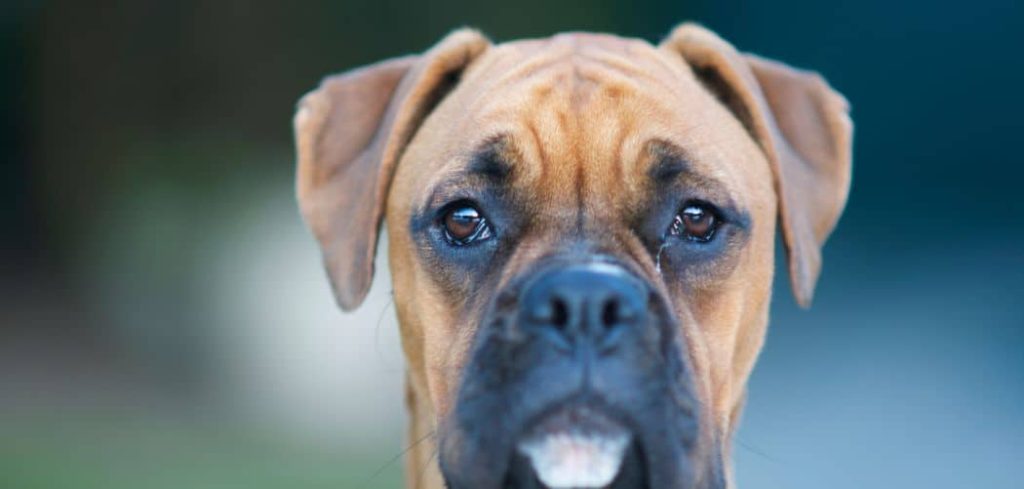Losing teeth is a common issue in senior dogs and can significantly affect their eating habits, comfort, and overall health.
If you notice your old dog struggling to chew, dropping food, or showing signs of oral pain, these are important indicators that dental issues may be present. Early attention can help prevent further complications and ensure your dog remains comfortable.
We outline the common causes of tooth loss in old dogs, what you can do, and when to seek veterinary help.
Old Dog Losing Teeth — Why It Happens
Old dogs often lose teeth due to age-related dental problems like periodontal disease, tartar buildup, or gum infections that weaken the structures holding the teeth in place.
In some cases, broken teeth from chewing hard objects or underlying health conditions such as diabetes or kidney disease can also contribute to tooth loss.
While a few missing teeth can be part of normal aging, widespread tooth loss usually signals advanced dental disease that may cause pain, difficulty eating, or infections.

Old Dog Losing Teeth: Common Causes
Periodontal Disease
Periodontal disease is the most common cause of tooth loss in older dogs. It begins with plaque and tartar buildup, which leads to inflammation of the gums and infection.
Over time, this weakens the structures supporting the teeth, eventually causing them to loosen or fall out.
Symptoms include bad breath, red or swollen gums, drooling, and difficulty eating. If left untreated, periodontal disease can also impact internal organs, making it a serious health concern.
Read more: Old Dog Bad Teeth (Causes and Remedies)
Tooth Decay and Cavities
Although less common than in humans, tooth decay can occur in senior dogs due to enamel erosion and bacterial activity.
Decayed teeth become fragile and may break or fall out. Signs include visible holes or dark spots on teeth, reluctance to chew, and sensitivity when eating.
Regular dental check-ups can help catch decay early and prevent severe dental loss.
Trauma or Injury
Older dogs may lose teeth due to accidents, falls, or chewing on hard objects. Even minor trauma can cause a weakened tooth to fracture or loosen.
Symptoms of trauma include sudden tooth loss, bleeding gums, or changes in chewing habits. Protecting your dog from hard toys or hazards can reduce the risk of injury.
Malnutrition or Poor Diet
Insufficient nutrients, particularly calcium and vitamin D, can affect dental health and bone strength.
Dogs with poor diets may develop weakened teeth that are prone to breaking or falling out.
Signs of nutrient-related tooth loss can include general weakness, brittle teeth, and slow healing of oral injuries. Providing a balanced diet is crucial for maintaining oral health in senior dogs.
Systemic Illnesses
Certain diseases, such as diabetes or kidney disease, can indirectly affect dental health.
These conditions can impair healing, increase susceptibility to infection, and exacerbate gum disease, leading to tooth loss.
Symptoms may include increased thirst, changes in appetite, lethargy, and other organ-related signs. Managing underlying illnesses is important for preserving dental health.
Oral Tumors
Oral tumors in older dogs can affect the gums, jawbone, or other structures supporting the teeth. Tumors may displace teeth or cause them to loosen.
You might notice swelling, bad breath, difficulty chewing, or visible growths in the mouth. Early detection and veterinary evaluation are essential, as some oral tumors can be aggressive.
What to Do If Your Old Dog Is Losing Their Teeth
Maintain a gentle dental care routine, including brushing with a dog-safe toothpaste and providing dental chews designed for seniors.
Feed soft, easy-to-chew foods to reduce pain and encourage proper nutrition.
Regularly inspect your dog’s mouth for loose teeth, swelling, or bad breath, and keep a record of any changes.
Ensure your dog receives balanced nutrition rich in essential vitamins and minerals to support oral and overall health.
Schedule routine veterinary dental check-ups, as professional cleaning and treatment may be required to prevent further tooth loss and infection.
When to Call or Visit Your Vet
Seek immediate veterinary attention if your dog shows signs of severe pain, bleeding, or sudden tooth loss.
Difficulty eating, drooling, swelling in the mouth, or persistent bad breath are warning signs that require professional evaluation.
If your dog develops fever, lethargy, or signs of systemic illness alongside dental issues, prompt veterinary care is crucial.
Early intervention helps manage pain, prevent infection, and preserve remaining teeth as much as possible.
Read more: Old Dog Grinding Teeth (Here’s why)
Key Takeaway
An old dog losing teeth can result from periodontal disease, decay, trauma, malnutrition, systemic illnesses, or oral tumors.
Providing regular dental care, soft nutritious food, and prompt veterinary evaluation are key steps in maintaining oral health and overall well-being.
Monitoring your senior dog closely and addressing dental issues early ensures they stay comfortable, healthy, and happy in their golden years.
